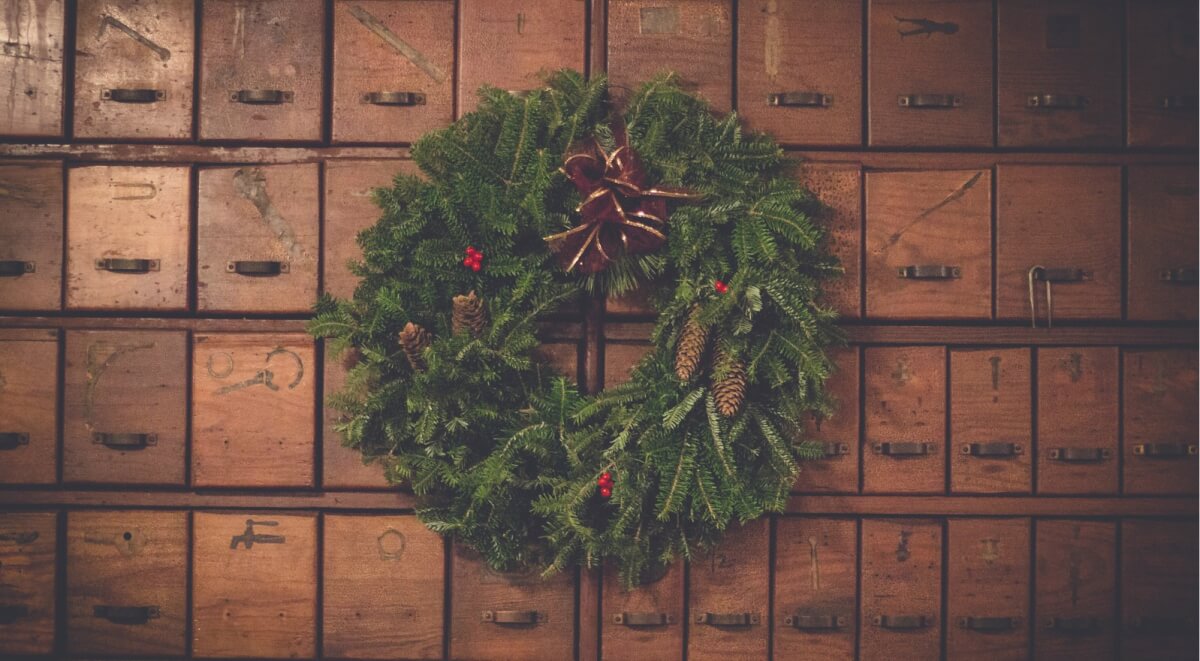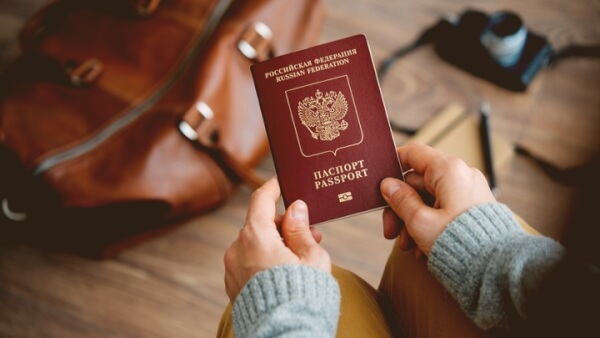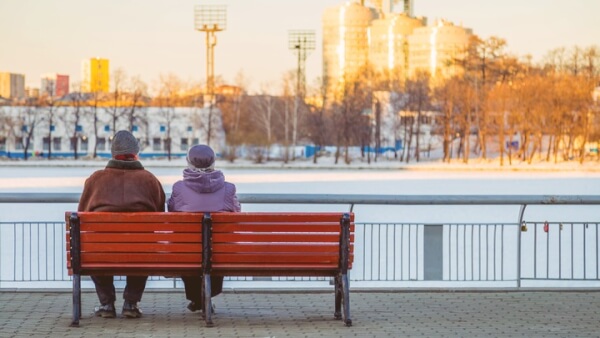How to obtain Russian citizenship: What you need to know
Looking to become a Russian citizen? Here's all you need to know about how to become one.

For many years under the Soviet Union, Russians couldn't celebrate Christmas openly as religion was discouraged or banned. Those who wished to do so had to carry out their traditions in secret and instead of Christmas being a big festival, New Year became the more important date. These days, Christmas is celebrated in Russia with religious and traditional customs - while New Year’s is still a big party - celebrated with friends and family, and washed down with shots of vodka. Because the primary church in Russia is Orthodox Christian and follows the old calendar for religious dates, Christmas is celebrated on the 7th of January, with the official holidays lasting right from New Year’s Eve through to around the 10th of January, depending on what day New Year falls on.
If you’re headed to Russia for the Christmas and New Year period, you’re going to have a great time. Here’s everything you need to know about Christmas in Russia.
In the Orthodox church, Advent lasts for 40 days and runs from the 28th of November through to the Christmas celebrations on the 7th of January. It’s fairly unusual to celebrate Christmas on the 25th of December, although not unheard of in Catholic or Protestant families.
Religion under the Soviet Union was discouraged or banned, so for some years Russians didn’t celebrate Christmas at all other than in secret and in their own homes. As people were unhappy about losing their festival, the government incorporated many of the traditions associated with Christmas into New Year. So people would for years put up New Year trees and exchange gifts. These days both New Year and Christmas are celebrated, with New Year still being the biggest party.
There have even been a couple of challenges made in court to try to stop Christmas being a public holiday, as it's unconstitutional in Russia for state and religion to be linked. However, these bids failed, and Christmas remains a day off for most. Much of the tradition associated with Christmas still reflects the fact that it’s an important day in the church calendar, so activities tend to be more based around family and religious observances.
Over the course of Christmas Eve and Christmas Day, families would traditionally attend various church services. These days of course, not everyone is so religious and many families prefer to choose other elements of the old traditions to celebrate Christmas. In most cases Christmas is a quiet family day, while New Year remains the big party, with lots of eating and drinking, and fireworks.
New Year’s Eve is usually a day of preparation, with lots of people not leaving the house until midnight. If they’re celebrating at home, Russians might watch the annual address from the President, which is aired just before the clock hits midnight. Then once the New Year arrives, the party really gets going. Russian cities are lit up with amazing firework displays. Many people will also have their own private fireworks, meaning that there will be a pretty good show wherever you are. The most iconic display takes place in the Red Square in Moscow and the fireworks light up many of the famous buildings in the city centre. Because Russia is spread out over no fewer than 11 time zones, there are several different Russian New Years - and no shortage of reason to celebrate all night long.
Christmas Eve is an important day for religious families that are getting ready for the arrival of Jesus. Traditionally people would either avoid eating altogether, or limit their food until the end of the church day at sunset. After sunset, people would eat a dish called Sochivo, which is made from grains such as wheat, rice, or lentils, sweetened with honey and mixed with seeds and nuts. Sochivo is so synonymous with Christmas Eve, that one of the words in Russian used for the Christmas Eve feast is derived from it.
With or without Sochivo, there’s a lot of eating on Christmas Eve, with some Orthodox Christians choosing to keep all their food vegetarian. This meal is known as a Holy Supper in some Slavic countries and there's a lot of symbolism associated. There’s usually a selection of 12 dishes, which represents the 12 disciples. Beetroot soup is a common dish, along with a vegetarian stew, cold dishes such as potato salad or pickles. The table will be laid with a white cloth to resemble the baby Jesus’ swaddling clothes and hay may be put on the floor under the table to remember that Jesus was born in a stable.
On Christmas day there's another large feast, this time with meat as a central element. Often roast goose with apples is served or other dishes such as meat filled dumplings.
New Year’s Eve - which actually falls before Christmas in the Orthodox custom - is another festival with it’s own eating and drinking tradition. If you’re hosting a party you’ll set out a huge buffet of small dishes called zakuski (snacks), which are a bit like tapas. The food will include caviar and pickles and will be in bite-sized portions which are then eaten in between shots of vodka and celebratory toasts.
Gifts in Russia are brought by Дед Мороз (Grandfather Frost) who is a kind of Slavic Santa, but he’s often shown wearing a blue coat rather than red. Grandfather Frost is accompanied by Снегу́рочка (the Snow Maiden) who is his granddaughter. Both characters were popular in imperial Russia before the Soviet Union, and then were incorporated into the Soviet retelling of New Year. So for many years under the Soviet Union, Grandfather Frost and the Snow Maiden would come to children’s New Year parties to hand out gifts.
Some families in Russia exchange gifts at Christmas, and some choose to continue the tradition of doing so on New Year’s Day instead. With several holidays all falling at once, there are quite a lot of gifts bought over the season. If you’re looking for something to buy a Russian friend, then commonly acceptable gifts such as wine, or a decent bottle of liquor are safe bets.
Spending over the long Russian holiday season seems inevitable. Some families give gifts on both New Year and Christmas, but these aren’t the only costs. With a long New Year break, many people also choose to travel to see friends and family. This, in addition to the costs associated with buying food and drinks for a whole week of celebrations, can be pricey.
If you’re in Russia for either New Year or Orthodox Christmas, you might find you need to move your money around between accounts held in different countries in order to pay for things. If you go through your bank to do this you can end up paying high fees for what should be a fairly straight forward international transfer. What’s worse, is you can be hit by these costs even if you’re using a service which says it's cheap or free from fees. In this case, the fee - and the profit for the bank - is often simply hidden within a poor value exchange rate. Either way, you normally pay more, and the bank wins.
A good way to avoid this - and get your international transfer for less - is to use a specialist service like Wise which uses the real exchange rate. The rate applied to your transfer will be exactly the same as you might find if you search for it on Google with no sneaky hidden costs. You only pay a small fixed fee, which is clearly shown upfront to make sure there are no surprises.
If you’re an expat or frequent traveller, you might also want to open up a Wise borderless multi-currency account which lets you hold money in several different currencies. You can see your total balance at a glance, even when it’s split across different currencies.You can convert your money to a different currency at a low fee when you want to and make and receive payments in any currency you’d like. From early 2018, you’ll also be able to get a debit card for your account so you can also pay in the local currency wherever you may be or withdraw money from ATMs abroad.
See for yourself if you can get a better deal with Wise.
In Russia, the festive season runs from the 31st of December through to the 10th of January. They then celebrate the New Year again at home with family on the 14th of January, marking what would have been the New Year under the old calendar. There’s a full week of public holidays most years, although this practice is periodically challenged because businesses lose a significant slice of their profit during this total shut down. However, the majority of individuals enjoy taking the time off, whatever the economic impact.
Important festive dates for Russia:
| Russian Christmas Holidays | Date |
|---|---|
| Но́вый год* (*New Year) | 31st of December and 1st of January (Public Holiday) |
| Канун Рождества** (Christmas Eve) | 6th of January |
| Рождество** (Christmas) | 7th of January (Public Holiday) |
| Новогодние каникулы (New Year’s Holiday Week) | 1st to 7th of January (Public Holidays, set annually depending on the days New Year falls on) |
| Старый Новый год (Old New Year - according to the old Julian calendar) | 14th January |
If you’re visiting Russia over New Year and Christmas, or you live there as an expat, you’ll find lots of great traditions which will surely make your experience memorable. You can expect New Year’s Eve to be pretty wild, with friends, food and fireworks, and Christmas a somewhat more restrained affair. Get yourself invited to a New Year’s party for the full experience. You’ll be knocking back shots of vodka and toasting your hosts in perfect Russian in no time.
*Please see terms of use and product availability for your region or visit Wise fees and pricing for the most up to date pricing and fee information.
This publication is provided for general information purposes and does not constitute legal, tax or other professional advice from Wise Payments Limited or its subsidiaries and its affiliates, and it is not intended as a substitute for obtaining advice from a financial advisor or any other professional.
We make no representations, warranties or guarantees, whether expressed or implied, that the content in the publication is accurate, complete or up to date.

Looking to become a Russian citizen? Here's all you need to know about how to become one.

One important decision, if you’re moving to Russia with family, is how to ensure that your children have the best possible education. According to the OECD,...

Whether you’re a Brit, an American or an Australian, you should consider Russia when choosing where to settle after retirement. Straddling Europe and Asia,...